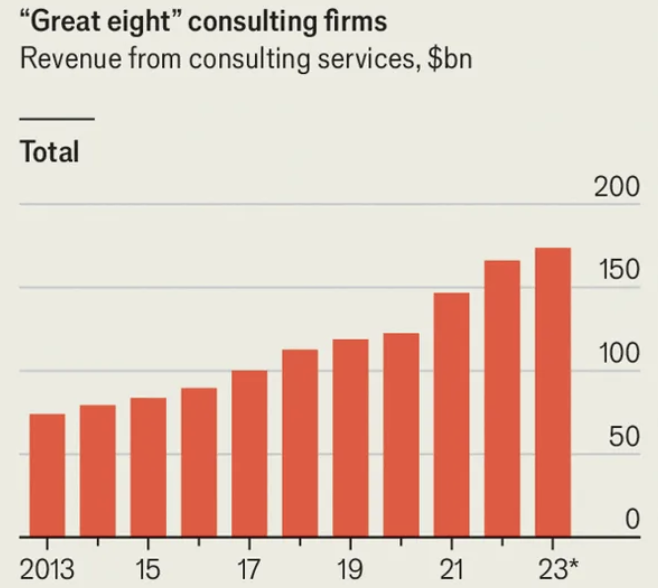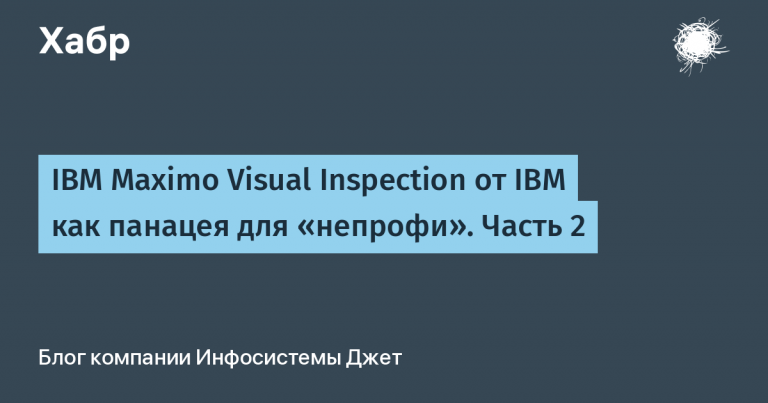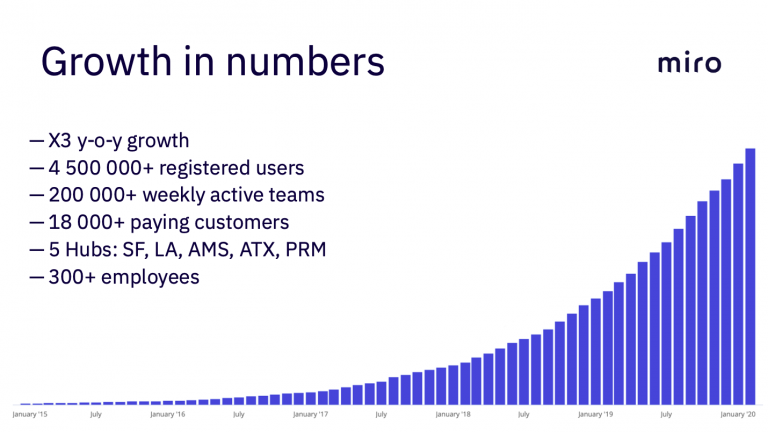The end of the consulting era
It is no secret that the elite of analysts are in consulting: strategic (Bain, BCG, McKinsey), accounting and auditing (PWC, Deloitte, KPMG, EY), outsourcing (Accenture).
But bad luck – the revenue growth of these eight has slowed down: 20% (2021), 13% (2022), 5% (2023).

Revenue is declining – consultants are being cut (they are hiring less actively, consultants are starting to idle on projects).
IN article The Economist identifies three reasons:
1. Geopolitics
Global consulting provides recommendations on the strategic development of businesses and entire countries, but this can greatly contrast with the national interests of the United States.
For example, the development strategy for China, created by McKinsey in 2015, proposed a bet on electric vehicles and artificial intelligence – which China took advantage of.
And the development strategy of Saudi Arabia through funds that sponsor the development of, for example, golf in the United States is the strengthening of “soft influence” on the government.
Consulting finds itself in an ambiguous position: by making America's competitors better, it does its alma mater (all global consulting is American) a “disservice.” In addition, countries now protect their national interests and are afraid of external advice.
2. Declining interest in ESG
Global consulting has significantly invested in ESG – a management paradigm that includes environmental, social and governance responsibility. These are new criteria for business assessment and investment, for which a huge area of methodological and consulting work has been created.
Global consulting has become a market maker (that is, it has created a whole new market) through the ESG paradigm. One problem is that the cost of “environment” comes in the form of rising prices and decreased competitiveness – not everyone is ready for this.
3. Consulting lags behind IT capabilities
If earlier the scope of consulting work included helping clients transition from outdated platforms to new technologies, then with the rapid development of technologies:
· consulting is no longer a carrier of advanced knowledge,
· recommendations on the very criteria for choosing platforms – for example, implementation experience – turn out to be long, expensive, outdated, and biased,
· companies themselves can solve development problems by purchasing technologies, and developers have the vision and skills that they will apply in their products and are happy to help clients without expensive consulting as an intermediary.
According to Pavel Durov, new functionality in Telegram appears at such a speed that official releases simply cannot keep up with them.
McKinsey's idea of making a consulting chatbot for artificial intelligence is interesting, but it somewhat devalues the work of consultants and will always be strategically late in relation to the capabilities of AI.
For now, the question remains open for Gartner and Forrester – how unbiased they can remain and quickly adapt to the market.
Thus, it was not consulting, but technology companies that began to set the vision, trends and technical capabilities for implementation.
For reference, in Russia after 2022, consulting has been renamed:
· Bain, BCG, McKinsey – formed Yakov and Partners,
· PWC – became the “Technology of Trust”,
· Deloitte – “Business Solutions and Technologies”,
· KPMG – “Capt”,
· EY – “K1”,
· Accenture – “Axenix”.





